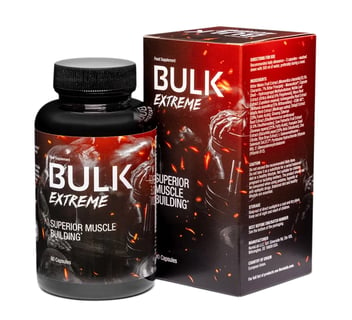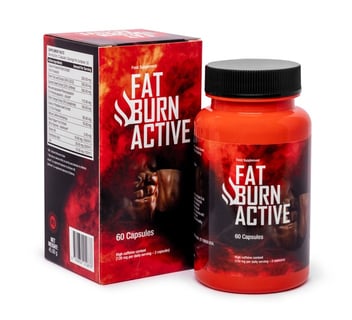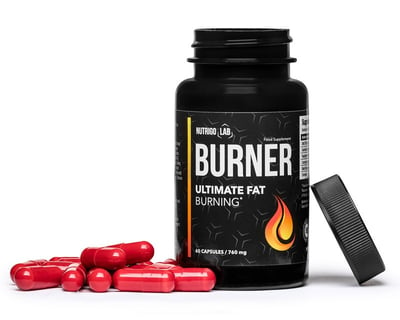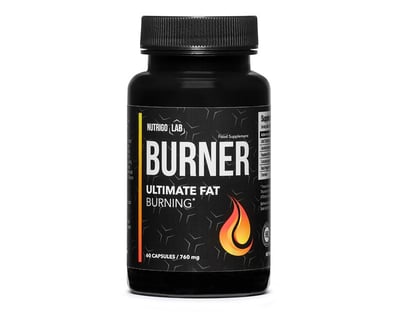Thermogenics and Fat Burners: Weighing the Pros and Cons
Descrição do post.
2/23/20254 min ler


The quest for a leaner physique often leads people to explore various supplements, including thermogenics and fat burners. These products promise to accelerate weight loss by boosting metabolism and increasing fat burning. But do they live up to the hype? This article delves into the world of thermogenics and fat burners, exploring their potential benefits and drawbacks.
What are Thermogenics and Fat Burners?
Thermogenics are substances that increase the body's core temperature, thereby boosting metabolism and calorie expenditure. Fat burners, a broader category, often include thermogenic ingredients but may also contain other compounds aimed at reducing fat storage or increasing fat breakdown.
Common Ingredients:
Caffeine: A stimulant that increases alertness, energy, and metabolism.
Green Tea Extract: Contains catechins, which may have modest effects on fat oxidation.
L-Carnitine: A compound involved in fat metabolism, though its effectiveness as a fat burner is debated.
Yohimbine: A stimulant that may promote fat breakdown, but can also have significant side effects.
Capsaicin: The compound that gives chili peppers their heat, potentially increasing thermogenesis.
Garcinia Cambogia: A fruit extract purported to suppress appetite and inhibit fat storage, though research is inconclusive.
Potential Benefits:
Increased Metabolism: Thermogenics can slightly elevate metabolic rate, leading to a modest increase in calorie burning.
Enhanced Fat Burning: Some ingredients may promote the breakdown of stored fat for energy.
Appetite Suppression: Certain ingredients, like caffeine and some fiber-based compounds, can help curb appetite.
Increased Energy Levels: Stimulants like caffeine can provide a temporary energy boost, which can be beneficial for workouts.
Thermogenics and Fat Burners: Weighing the Pros and Cons
The quest for a leaner physique often leads people to explore various supplements, including thermogenics and fat burners. These products promise to accelerate weight loss by boosting metabolism and increasing fat burning. But do they live up to the hype? This article delves into the world of thermogenics and fat burners, exploring their potential benefits and drawbacks.
What are Thermogenics and Fat Burners?
Thermogenics are substances that increase the body's core temperature, thereby boosting metabolism and calorie expenditure. Fat burners, a broader category, often include thermogenic ingredients but may also contain other compounds aimed at reducing fat storage or increasing fat breakdown.
Common Ingredients:
Caffeine: A stimulant that increases alertness, energy, and metabolism.
Green Tea Extract: Contains catechins, which may have modest effects on fat oxidation.
L-Carnitine: A compound involved in fat metabolism, though its effectiveness as a fat burner is debated.
Yohimbine: A stimulant that may promote fat breakdown, but can also have significant side effects.
Capsaicin: The compound that gives chili peppers their heat, potentially increasing thermogenesis.
Garcinia Cambogia: A fruit extract purported to suppress appetite and inhibit fat storage, though research is inconclusive.
Potential Benefits:
Increased Metabolism: Thermogenics can slightly elevate metabolic rate, leading to a modest increase in calorie burning.
Enhanced Fat Burning: Some ingredients may promote the breakdown of stored fat for energy.
Appetite Suppression: Certain ingredients, like caffeine and some fiber-based compounds, can help curb appetite.
Increased Energy Levels: Stimulants like caffeine can provide a temporary energy boost, which can be beneficial for workouts.
Potential Drawbacks:
Side Effects: Stimulants can cause anxiety, jitters, insomnia, increased heart rate, and even more serious cardiovascular issues.
Dependence: Regular use of stimulants can lead to tolerance and dependence, requiring increasingly higher doses for the same effect.
Dehydration: Increased metabolism can lead to dehydration, especially if fluid intake is not sufficient.
Interactions with Medications: Thermogenic ingredients can interact with certain medications, posing health risks.
Limited Effectiveness: While thermogenics and fat burners may offer a small boost to weight loss, their effects are often modest and not a substitute for a healthy diet and exercise.
Lack of Regulation: The supplement industry is not as tightly regulated as pharmaceuticals, meaning product quality and ingredient accuracy can vary. Some products may contain undeclared or harmful substances.
Rebound Effect: After discontinuing use, some people experience a "rebound" effect, with weight regain and fatigue.
The Bottom Line: Thermogenics and fat burners are not a magic bullet for weight loss. While they may offer a small advantage, their benefits are often overstated, and they come with potential risks. The most effective and sustainable approach to weight loss involves a balanced diet, regular exercise, and healthy lifestyle habits. If you're considering using these supplements, it's crucial to consult with your doctor or a registered dietitian to discuss the potential risks and benefits and ensure they are safe for you. Don't rely on supplements as a quick fix; focus on long-term, healthy strategies for lasting results.








